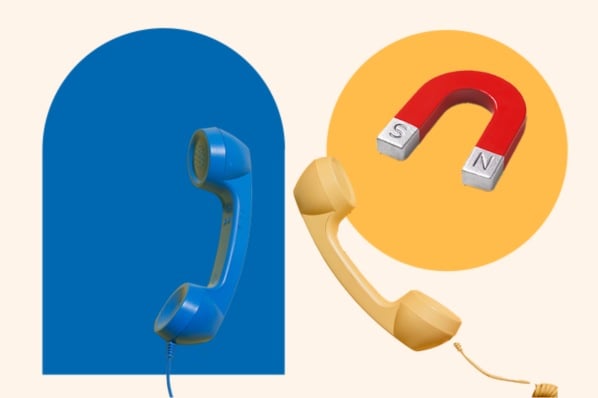

Discovery calls might not get as much attention as closing calls -- but without a thorough discovery, salespeople will never get to a close. The discovery call gives him a opportunity to assess his prospect’s needs, earn her trust, and set the foundation for a consultative relationship.
It’s critical that every question the rep asks helps him achieve these goals. Yet there’s a popular way to begin discovery that does the exact opposite: It annoys the prospect, damages the rep’s credibility, and harms their relationship.
The question is, “What do you already know about our products?”
The Problem With Asking Prospects What They Already Know About Your Products
On the surface, this question seems harmless. Salespeople don’t want to bore their prospects with knowledge they already possess, so this question lets them figure out which sections of their presentation they can skip. It also lets reps identify any misinformation their prospects may have.
But prospects may feel like they’re being asked to sell themselves. Rather than talking about their own objectives, challenges, and company, they’re reciting facts about the rep’s company. It takes the focus away from them and puts it on the seller -- and this is typically just two minutes into a stage of the sales process that’s meant to be all about the buyer.
What to Say Instead
Instead of launching into their questions with, “What do you already know about our products?”, the rep should start with an open-ended, prospect-focused one such as, “Which metrics are you responsible for?” or “What are your current goals?”
These prompts allow the salesperson to gather crucial information about his prospect’s situation. Not only can he use these insights to position his product in future conversations, but starting with her needs instead of his automatically makes him more credible and trustworthy.
That doesn’t mean reps should never try to gauge their prospect’s familiarity with their company or offerings -- especially if they know the prospect has spent some time on their site or their company is fairly well-established in the market. This question can reveal what stage of the buyer's journey the prospect is in.
If the prospect knows very little, they're probably in the awareness stage: They’ve realized they have a problem, but they’re not sure how they’ll solve it. But if the prospect is well-acquainted with the product and its capabilities, they’ve probably moved into the consideration or decision stages of the buyer’s journey. The rep should help them identify the best solution for their needs and show them the specific value of their product, respectively.
Once the discovery call is underway, salespeople can say, “I don’t want to waste your time on information you already know. On a scale of 1-10, where one is ‘never heard of you before’ and 10 is ‘I know everything about you,’ how familiar are you with [company]?”
Explaining why this question is in the prospect’s best interests and waiting to pose it until the middle or end of the call lets salespeople avoid seeming self-centered.
If the prospect says a number in the one to three range, the salesperson may need to spend more time educating them on the solution’s capabilities -- or why it’s necessary in the first place. If the prospect gives a number larger than five, the rep should say, “Great. Could you give me an overview of what you already know so I don’t spend any time reiterating those things?”
Salespeople can also preface their presentation or demo with something along the lines of, “Feel free to stop me if I start talking about an area you’re already familiar with.” This statement gives prospects the freedom to interject when heading into previously covered ground.
What reps don’t ask during discovery and qualification is just as important as what they do ask. The wrong question (or the right question at the wrong time) can launch them on a trajectory away from a close. A strong opener, on the other hand, will set them up for success down the line.
![How to Use BANT to Qualify Prospects in 2024 [Expert Tips]](https://blog.hubspot.com/hubfs/bant-questions-6606f7b6c0d9e.webp)



![21 Signs Your Buyer Is a Poor Fit [Sales Process Checklist], According to HubSpot's Former Sales Director](https://blog.hubspot.com/hubfs/Bad%20fit%20checklist.jpg)




